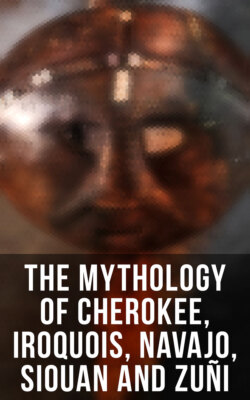Читать книгу The Mythology of Cherokee, Iroquois, Navajo, Siouan and Zuñi - James Mooney - Страница 74
На сайте Литреса книга снята с продажи.
'Good' and 'Bad'
ОглавлениеBefore man has discovered the uses of that higher machinery of reason, philosophy, and has learned to marshal his theological ideas by its light, such deities as he worships conform very much to his own ethical standard. They mirror his morality, or lack of it. They are, like himself, savage, cruel, insatiable in their appetites. Very likely, too, the bestial attributes of the totemic gods cling to those deities who have been evolved out of that system. Among savage people ideas of good and evil as we conceive them are non-existent. To them 'good' merely implies everything which is to their advantage, 'evil' that which injures or distresses them. It is only when such a system as totemism, with its intricate taboos and stringent laws bearing on the various relationships of life, comes to be adopted that a 'moral' order arises. Slaughter of the totem animal becomes a 'crime'—sacrilege. Slaughter of a member of the totem clan, of a blood-brother, must be atoned for because he is of the totem blood. Marriage with a woman of the same totem blood becomes an offence. Neglect to pay fitting homage and sacrifice to the gods or totem is regarded with severity, especially when the evolution of a priestly caste has been achieved. As the totem is an ancestor, so all ancestors are looked upon with reverence, and deference to living progenitors becomes a virtue. In such ways a code of 'morality' is slowly but certainly produced.
